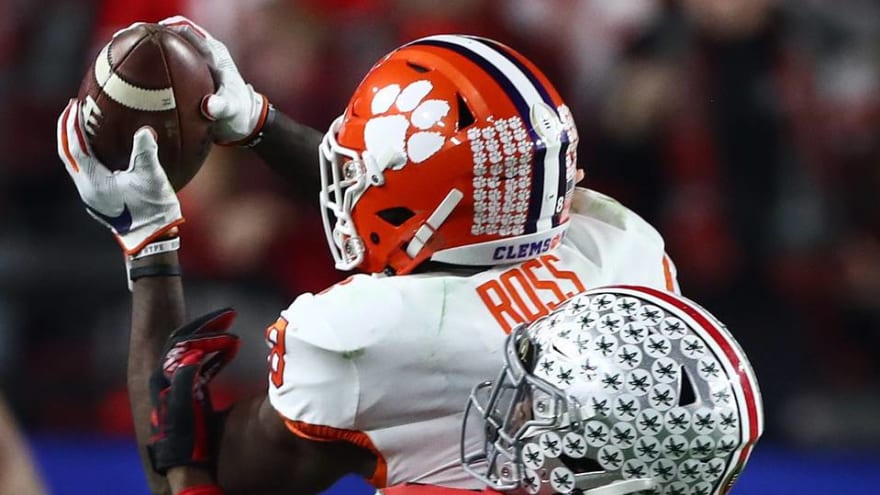Something appeared to go awry in the final minutes of the Rose Bowl, when Wisconsin was called for a perplexing offensive pass interference penalty in the midst of a 28-27 loss to Oregon. But, of course, something went awry in other crucial college football games this season too.
In the Sugar Bowl between Baylor and Georgia, officials missed a blatant defensive pass interference. In the Fiesta Bowl/College Football Playoff semifinal between Ohio State and Clemson, the Buckeyes (most notably) had a defensive touchdown overturned on a instant replay reversal of a call that seemed to defy logic and common sense.
Did those calls cost Wisconsin and Ohio State victories? I don’t know, and as much as the raging partisans on both sides might like to tell you they did or did not, they don’t really know either. But here’s what we can say for certain: Heading into this year’s national championship game between Clemson and LSU, I have less confidence than ever that a blown call won’t affect the outcome. I’m almost expecting it. And more than 15 years after college football adopted the most comprehensive replay review system in any sport, it’s more clear now that the system itself is corrupted.
“Officiating/replay in CFB is totally broken,” tweeted Fox analyst Joel Klatt. Instead of making officiating better, glitches in the system have made things worse. Now, you could say that officiating in college sports has always been broken. You could point to, for instance, that Miami-Ohio State Fiesta Bowl in 2003, when a highly questionable pass interference call gifted the Buckeyes with a national championship.
But there’s something about this moment that feels different. Part of it may be a reflection of the culture as a whole: Heading into the 2020s, technology feels more like an adversary than an ally, and instant replay is a prime example. We were naive enough to assume that it would right nearly all the injustices of past games. Instead, it has underscored the fact that we’ll never escape the inevitability of human error.
By adopting a system that reviews pretty much every marginal call instead of a limited set of plays, the sport has essentially become a guinea pig for the instant replay experiment. Here’s what we’ve learned: All those reviews make the game longer and slower, but they don’t necessarily make it better. As we’ve seen with the NFL’s rules changes, even if officials are able to review offensive pass interference calls like the one in the Rose Bowl, there’s no way to know the outcome — in real time, ESPN’s rules analyst assured viewers that it was the right call, while former official Terry McAulay, tweeted that the officials had gotten it wrong.
I think that’s the fundamental problem: We bought into instant replay because it seemed like it would make officiating seem less arbitrary. Yet as the New Republic’s Josh Patashnik wrote back in 2009, “a huge number of referees’ calls are, to a very large degree, arbitrary.” That’s why the reversed fumble recovery by Ohio State against Clemson especially felt like an affront. According to Patashnik, it’s much easier to accept when officials uphold a 50-50 call due to the lack of conclusive evidence. But when they overturn one of those close calls, “it draws attention to the arbitrariness of the call in the first place… the process — not just the outcome — feels unfair in a way it didn’t before.”
That’s where we are now. In an era when everything is supposed to feel more fair, technology has made it less so. That’s why college football should follow the lead of the Canadian Football League and its approach to instant replay: Calls are overturned only when a “clear and obvious” mistake has been made.
We’re never going to fix everything, and by trying to we’re only making things worse. That standard didn’t apply in the Fiesta Bowl, and it won’t apply in New Orleans when Clemson and LSU meet in a national title game that should be focused on everything but the arbitrary nature of officiating and the imperfection of modern technology. I’m hoping for the best, but at this point, given the flaws in the process, I’m also prepared for the worst.
By Michael Weinreb | Last updated 1/3/20




